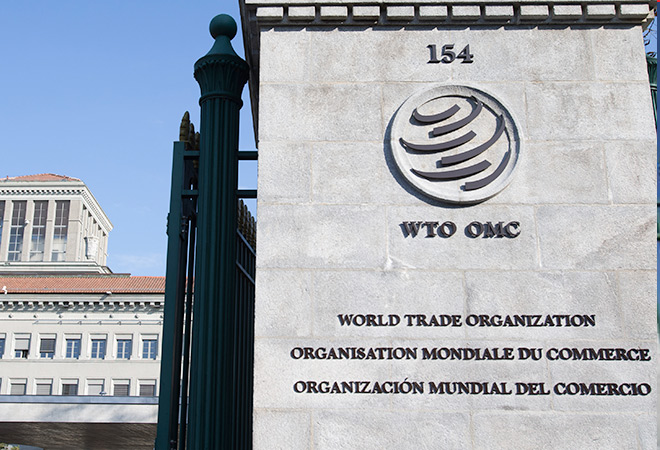India has recently barged into the World Trade Organization (WTO) with its stand on countries having the flexibility of restricting exports to the World Food Programme (WFP). This demand has been meted out by India over the growing concern of domestic requirements going par the requirement; India instead of exporting, demands to use the surplus for domestic fulfilment, which will ensure its national food security.
The Indian demands lurk over the concerning context of the Russia-Ukraine war, that has not only impacted its domestic wheat supply, but also the rest of the world. Due to the war at force, the price of grains has significantly gone up, which puts India, a developing country, at a worse situation than the opposing rich countries of the West.
As Piyush Goyal, the Union Minister of Consumer Affairs, Food and Public Distribution, alongside the Indian delegation, have been preparing to leave for the trade meeting to be held in Geneva within three days, the central authority in New Delhi has been focusing its concern on two specific areas:
Firstly, India wants to seek freedom on using its public stocks (food procured from the harvest of its farmers) to use it for humanitarian aid, that also involves government aids.
This demand, which India wants to meet, is barred under the rules put forth by the World Trade Organisation as it leads to market distortion. However, reiterating on the same, India staunchly demands to have flexibility on deciding to send food aids to countries in need directly, without the involvement of any global organisation.
The second demand that Indian authorities want to meet has been long standing with the World Trade Organisation; a “permanent solution” to let the developing counties have the freedom of providing their farmers a higher rate of subsidies. As per the guidelines of the WTO, this again leads to market distortion. However, this is most likely to be taken up by the Indian delegates in the upcoming ministerial meeting to be held soon.
As there are only three days left for the commencement of the 12th ministerial conference, these two areas will be the primary focus of the Indian delegates on the due course of negotiations with ambassadors present in Geneva.
India’s stance on this matter is clear; it wants to be more self-reliant in terms of its domestic production and use it for the food security of its own population, before releasing it out for export. Secondly, it wants to enhance the condition of farmers, hence, demands for a higher subsidy for them.
Whether our demands be met or not is the question that remains, and hence what happens after the conference will be crucial to note.

